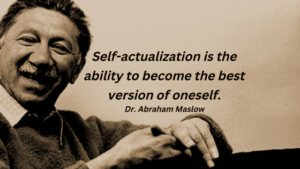The military environment—and the overall culture of the military—is drastically different from non-military workplaces and civilian employment. It can be a challenging for many Veterans to perform their best in a regular 9 to 5 after the Military. These challenges often persist for years and even decades after discharge, as Veterans struggle, jump from job to job, and often blame themselves for their inability to connect with others, grow their dream career or achieve full potential. Below we will discuss some of the most common areas where Veterans struggle in civilian workplaces and how to succeed.
Translating military skills to civilian job requirements.
This is a mistake because there are an infinity of careers or things to do and trying to transition “Military Skills” is not necessary, and misleading. Military skills and job titles do not always translate to the duties and requirements of civilian work. Veterans often struggle to identify and articulate how their military experience and skills align with the requirements of their civilian job. Additionally, employers, supervisors, and co-workers often do not fully understand the value that Veterans bring to workplaces.
Adjusting to different workplace cultures and communication styles.
The military has a very unique culture, and this includes the way military service members communicate with one another. Veterans often struggle to adapt to the new culture and communication styles typical of civilian workplaces. Misunderstandings and difficulty building relationships with co-workers and supervisors can be difficult. Many Veterans become frustrated with civilian workplace issues, such as favoritism/unfairness, tardiness, hearing their co-workers “complain” about petty workplace “problems,” or receiving vague or constantly changing instructions from supervisors. These are often commonplace issues in civilian jobs but certainly not in the more structured and disciplined environments of military life.
Coping with mental health challenges.
Many Veterans may have experienced traumatic or high-stress events during their military service, which can lead to mental health problems such as depression, anxiety disorders, substance abuse, or Post Traumatic Stress Disorder (PTSD). These emotional concerns can make it difficult to adjust to civilian life, and can impact attention, concentration, memory, mood, and motivation. Overall, mental health concerns can interfere with effective performance in the workplace, but it doesn’t have to be this way.
Overcoming stereotypes and biases.
Some employers may hold stereotypes or biases about Veterans, which can make it difficult for them to secure employment or advance in their careers. When employers hold stigmatizing beliefs about military service members, there is often a trickle-down effect whereby employees may hold the same beliefs, and it is considered acceptable within the workplace to treat Veterans differently. Veterans may need to work harder to dispel these stereotypes and biases and demonstrate their skills and abilities. They may be subjected to inappropriate questions about deployments, jokes about Veteran mental health, or even workplace bullying. With the right mindset, most of these attacks can be addressed successfully.
Finding a sense of meaning and purpose in work.
Military service can provide a strong sense of purpose and meaning, as service members make a great sacrifice for their country and dedicate years of their lives to a noble calling. However, civilian jobs may not provide the same level of meaning and this can be difficult for many Veterans. They may struggle to find a sense of purpose in their work, which can lead to poor motivation and dissatisfaction with their work.
Overall, reaching full potential and thriving in civilian life can be a challenging process. Veterans need support and resources to navigate and overcome these common challenges. Our competitors receive a large amount of government funds, but what is lacking in many programs for Veterans are comprehensive solutions for the many challenges that Veterans actually face.
FaithSMagnet offers the only Mental TAP in the country, focusing on the critical topics that most VSOs and free government TAP programs neglect, leading to the many consequences that Veterans confront daily.
Additional Resources:
If exploring yourself and how you can improve your career, get promoted or impact your world is something you are interested in, book a free Career Consultation here.



